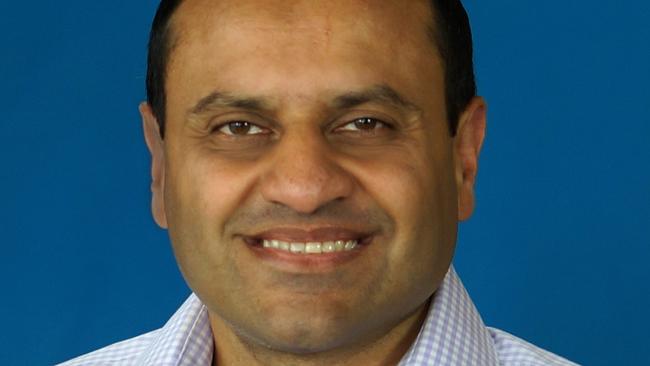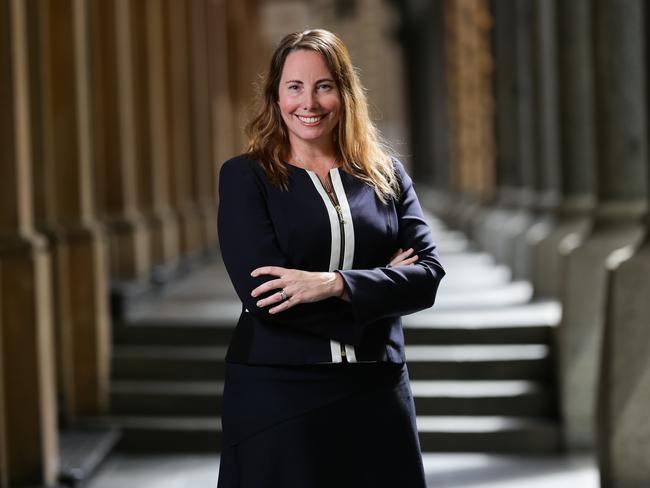Openpay placed into receivership and we can expect more pain for BNPL sector, says Splitit chief
Openpay is the first domino to fall in what was once the ASX’s hottest sector, says Splitit chief Nandan Sheth.

The buy now, pay later sector will see more failures following the collapse of Openpay and “copycat” companies are most at risk, the chief executive of ASX-listed fintech Splitit predicts.
And the local sector is likely set be a prolonged period of pain amid rising interest rates and tightened venture capital belts, Nandan Sheth warned.
In a sector that was once one of the strongest performing on the ASX, BNPL provider Openpay on Tuesday entered receivership. McGrathNicol partners Barry Kogan, Jonathan Henry and Rob Smith are now looking for a buyer.
Openpay made about 80 staff redundant and has shut down its platform, while New Zealand-based provider LayBuy told investors last week it would de-list from the ASX after its share price cratered.
Mr Sheth, who became chief executive of Splitit last year, told The Australian Openpay operated with a fundamentally flawed business model. According to its most recent financial filings, Openpay ended the December quarter with a cash balance of $17m and had torn through $18m over the previous three months.
“When you’re lending to subprime consumers with a very high write-off rate – in some cases 300 to 400 basis points of write-offs – and a super-high customer acquisition cost along with marketing costs, your path to profitability is going to be challenged,” Mr Sheth said.
“Then there are concerns when it comes to bringing in new capital from new investors, because they may not buy into the long-term story, and when you can’t raise capital and you have got warehouse lines from lenders that have a variety of different covenants – you can very quickly hit a covenant – the lender will come in and propose a restructuring of the company.
“So to be very candid, I’m not surprised that this is happening, I think we will see more consolidation in this space and we’re going to see buy now, pay later players focus on profitability.”

Mr Sheth said there would inevitably be more casualties across Australia’s buy now, pay later sector, despite the sector and first-movers like Afterpay doing a good job early in their existence of creating demand for their products.
“They have invented the interest free, pay-later economy. However I don’t think that much thought was given to the structural business model,” he said.
“So what occurred was many copycats created a buy now, pay later mousetrap that from a business model standpoint was exactly the same as the original players that really founded the industry.
“They targeted subprime consumers that may not have credit, who need to split a $200 transaction, and you’re originating a brand new loan – in some cases outside of the regulatory infrastructure of that country – and then you’re hoping that those consumers will pay you back on time.
“I think unfortunately the demand from consumers really did not take into account how broken this model was.”
Executives representing Openpay were unable to comment on the record.
Splitit, which is listed on the ASX, uses a customer’s existing credit from a credit card issuer, and deals with merchants rather than consumers, according to its chief executive.
The comments come amid new statistics from the Australian Finance Industry Association claiming that about 6.3 million Australians are choosing to use BNPL, contributing some $18.4bn to Australia’s gross domestic product. BNPL only accounts for 0.66 per cent of all of Australia’s payment transactions, however.
AFIA chief executive Diane Tate said: “BNPL is low cost and low risk, the average BNPL transaction value is $136.
“Consumers are able to save in interest and fee costs (relative to other financial products) and surcharge savings. Delaying payment allows for more effective budgeting.
“The finance sector is constantly evolving, looking for ways to deliver the best products and services while providing strong support for vulnerable Australians.

“BNPL delivered $2.7bn in new revenue for retailers in the 2022 financial year, through new customer acquisition, increased basket sizes, increased customer satisfaction, and retention and lower fraud rates and marketing costs. This means real jobs for those working in retail and more customers having their needs met.”
Looking forward, Mr Sheth said some of the existing BNPL providers would be likely to pivot to compete more directly with banks, including offering more financial services like a checking account and consumer laws.
“Buy now, pay later is ultimately going to be a model that is very successful, and I squarely believe that Splitit is not going to be the only company that’s in the market,” he said.
“I believe there will be more companies innovating around leveraging existing credit, like Splitit is doing in partnerships with merchants, and we’ve proven that our operating costs will not escalate as the company scales.
“For us it’s about building a platform that is inclusive of the ecosystem, rather than trying to be a payment brand, or a consumer lender.”



To join the conversation, please log in. Don't have an account? Register
Join the conversation, you are commenting as Logout